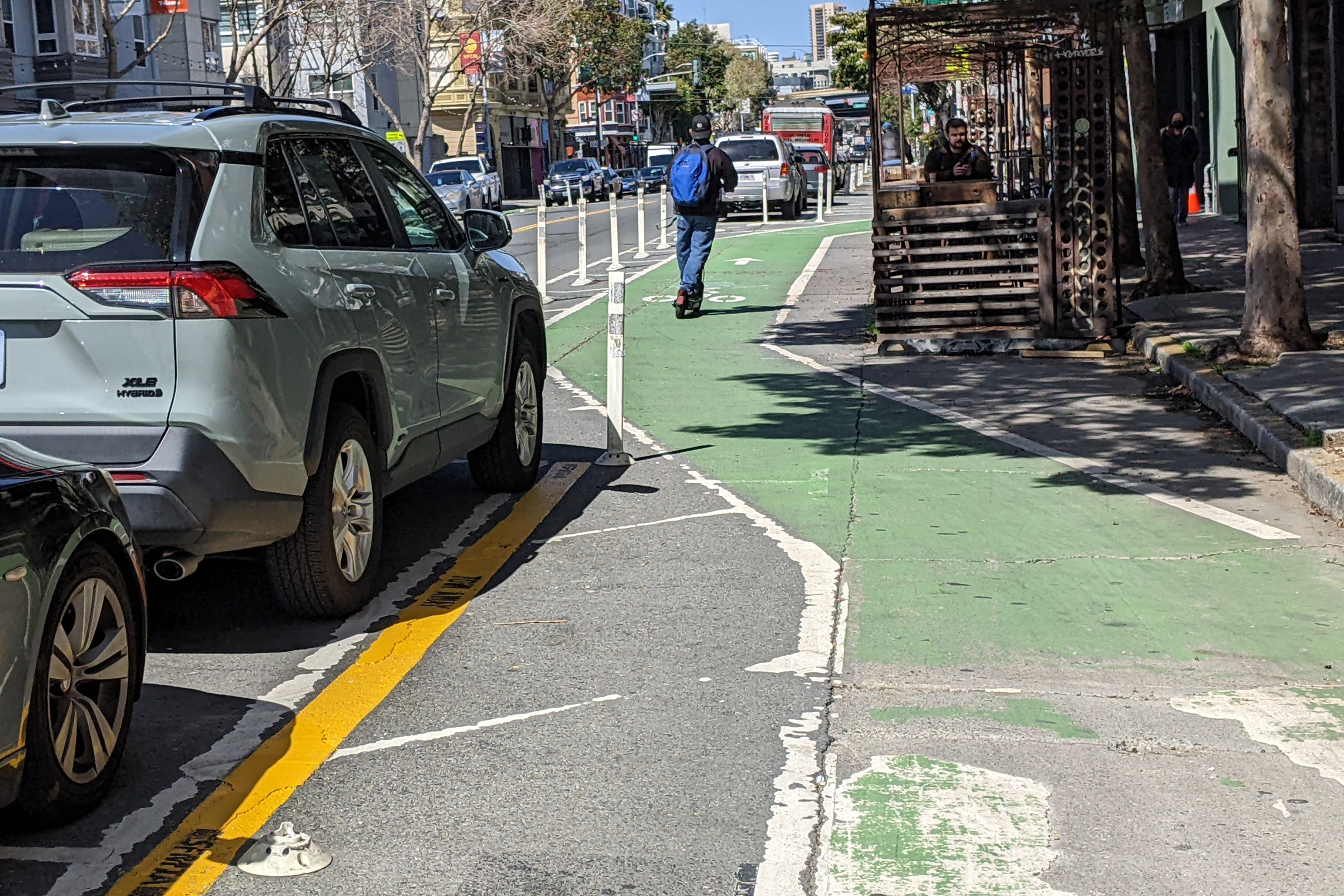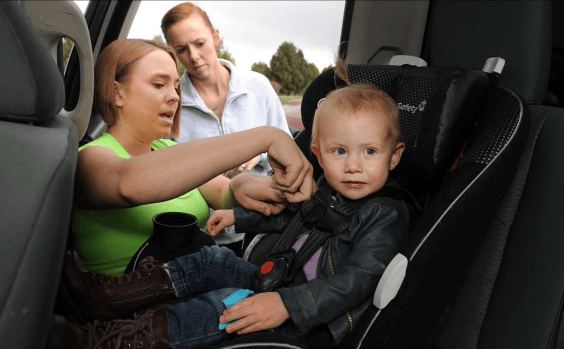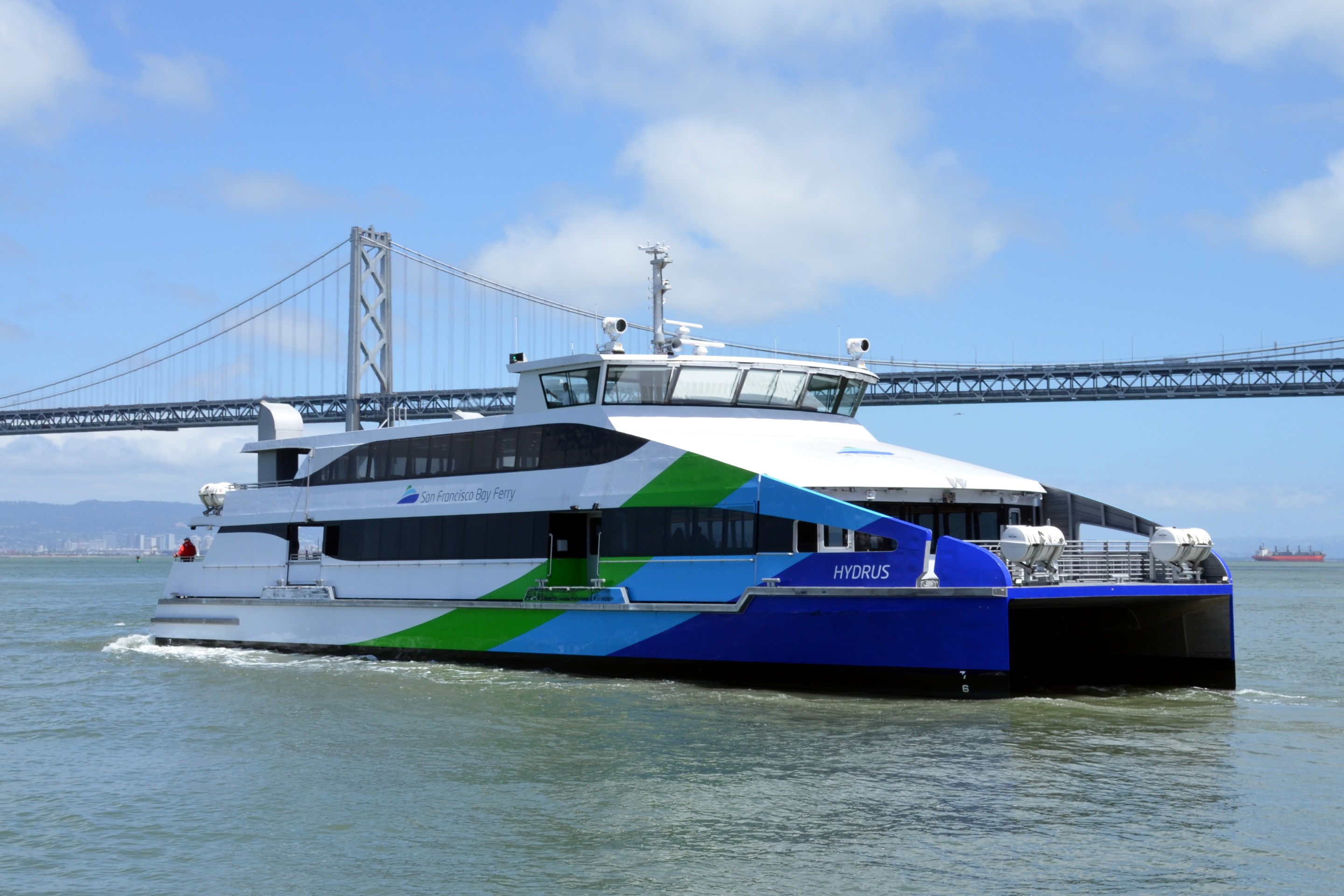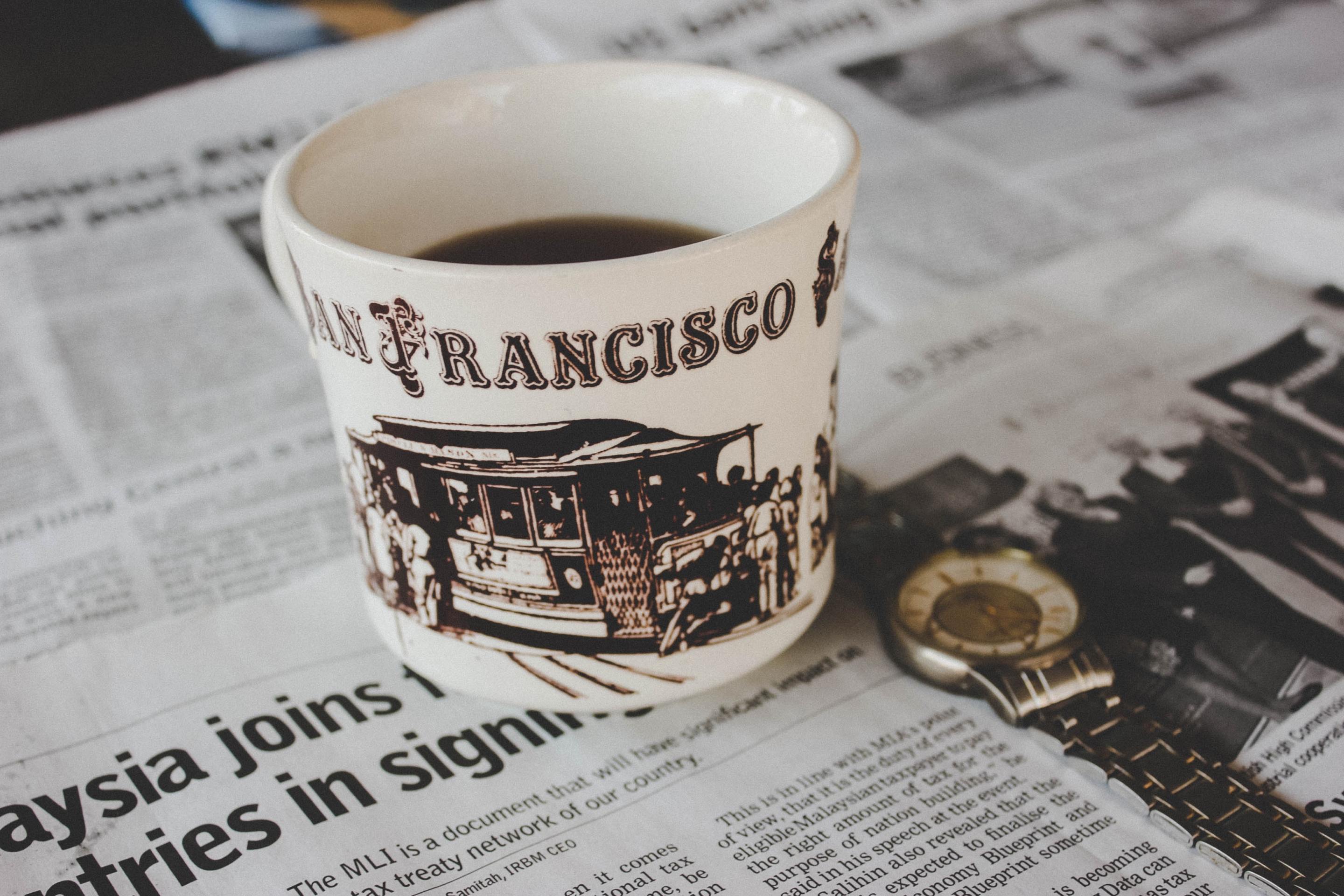Alameda Latest City to Add ‘Slow Streets’
4:09 PM PDT on April 30, 2020
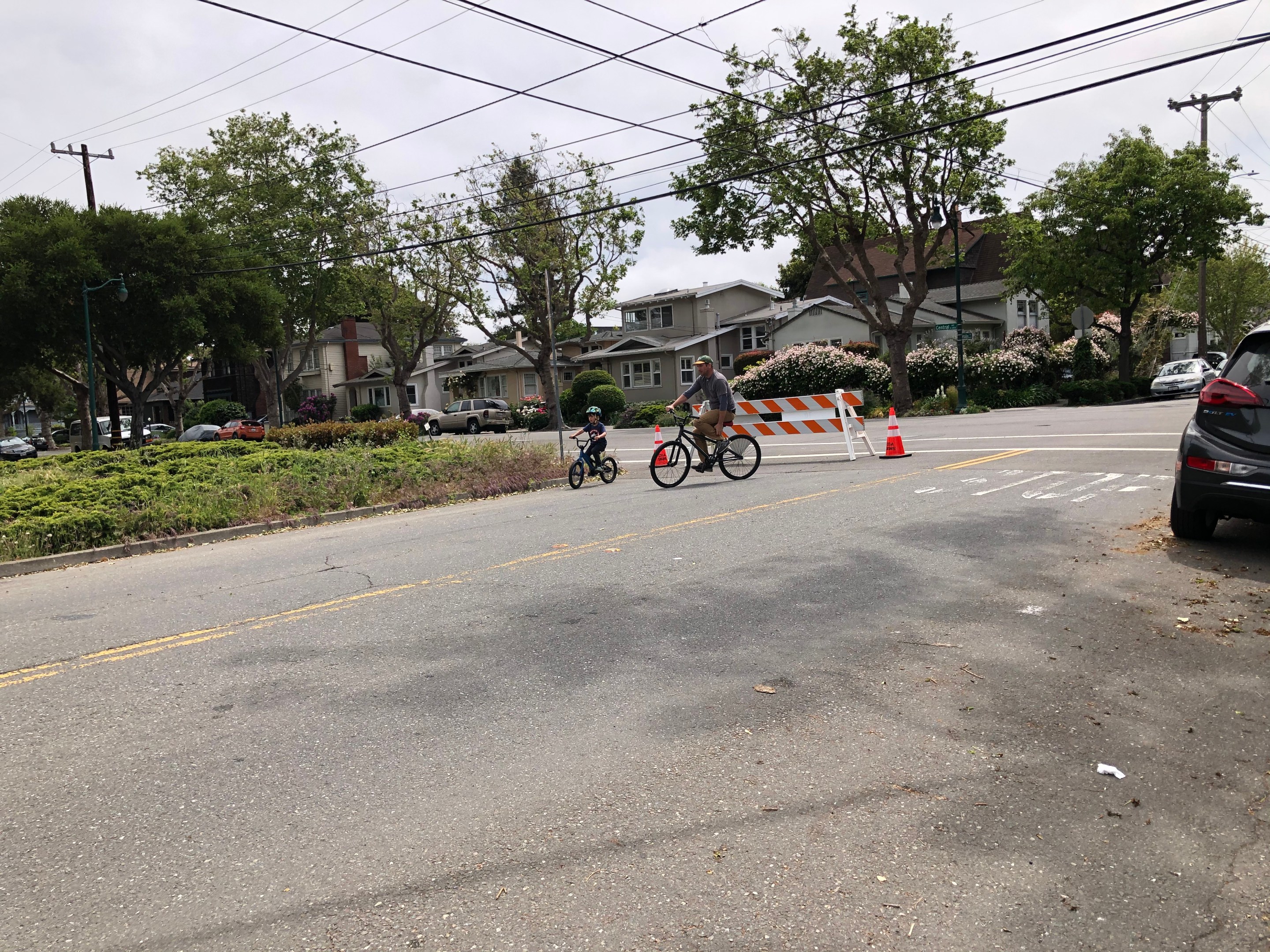
Photo: Susie Hufstader
The island city of Alameda joined Oakland and San Francisco today in launching a 'slow streets' program, closing streets to thru traffic to give people more space to walk, bike, jog, and play during the COVID-19 lockdown.
From the Alameda city web page:
Slow Streets Alameda is a pilot program implementing "soft" closures of select Alameda streets to through traffic to facilitate physical distancing of more than six feet during the COVID-19 emergency. It is expected to last at least for the duration of the shelter in place order.
By limiting automobile traffic on these streets, the City will create more places for our community to safely walk, run, bike, scooter and roll, in alignment with its Vision Zero efforts to provide safer streets for all.
As with other 'slow streets' programs, emergency vehicles, and local traffic that must use these streets to access a final destination, are allowed.
"All looks good--with some refinement needed," wrote Bike East Bay's Susie Hufstader, who lives on the island, in an email to Streetsblog. "The segments are pretty long, so some more signage is needed around the middle sections. As is, cars coming from side streets can't really tell that anything is different. Even so, the calming effect is already tangible and there are already more young kids on bikes."
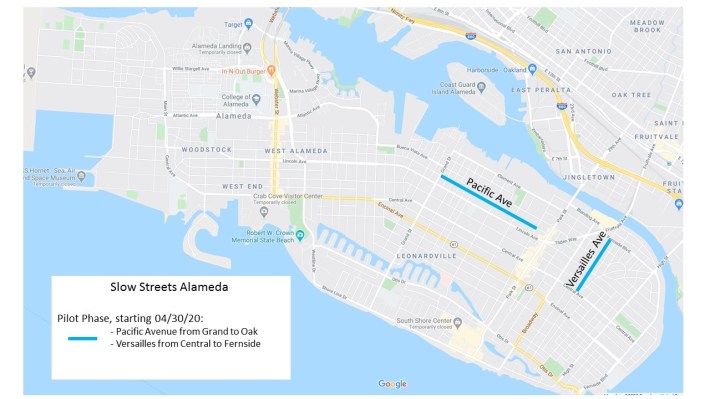
The city is starting with just two streets, as seen on the map above, but more are under consideration. Readers can answer a poll about today's and future closures here and help the city figure out where else 'slow streets' are needed.
But so far, things are off to a good start. "Today I saw a tiny child with parent biking down Pacific -- while singing a sweet song," wrote Hufstader. "Pure joy!"
Pretty! https://t.co/abMUjLxMfC
— Bike Walk Alameda (@bikewalkalameda) April 30, 2020
Alameda joins a growing list of Bay Area Cities creating safe spaces for exercise and social distancing. Oakland started the trend earlier this month when it announced a plan to slowly close 74 miles of neighborhood streets to thru traffic. San Francisco followed suit last week. And cities on the Peninsula are also in various degrees of roll out, including San Mateo, Redwood City, and Foster City.
Many hope these small steps towards taking some streets back from auto-dominance can continue after the COVID-19 crisis subsides.
“For 70 or more years we’ve just assumed streets are for cars primarily,” said Adam Nugent, president of the Home Association of North Central San Mateo, as quoted in an article in the Daily Journal about the 'slow streets' program in San Mateo and Foster City. "This is a good education experience to realize that wasn’t the case for most of human history and to see how nice it is to have that extra space for more than just the 1-ton prosthetic devices we rely on."
A few updates... received at 5 p.m., Thurs.:
Alameda's Rochelle Wheeler, head of the city's Bicycle and Pedestrian Program, reports they've had:
- Mostly positive public response so far. Over 100 responses to our survey so far.
- The City is evaluating adding additional barricades to the streets, and expects to do so within the next week or so.
- Possible further expansion will include outreach to residents of streets that will become Slow Streets, in a manner still TBD.
- It's way too early to make decisions on whether this program will become permanent or not.
And the city of Oakland reports these additions to the 'slow streets' program, to go into effect Friday/tomorrow:
- 16th St (Wood St to West St)
- 34th Ave / Davis St / Humboldt Ave (Foothill Blvd to School St)
- 59th St / Howell St / Ayala Ave / Forest St (Adeline St to Claremont Ave)
- Alice St (11th St to 19th St)
- Colby St (Woolsey St to Claremont Ave)
- Wayne Ave / Athol Ave / Wayne Pl / E 19th St (Hanover Ave to 13th Ave)
Stay in touch
Sign up for our free newsletter
More from Streetsblog San Francisco
Commentary: Making Valencia Better for Business
Curbside protected bike lanes with curbside parklets deliver on much-needed economic benefits for merchants while ensuring safety for all
